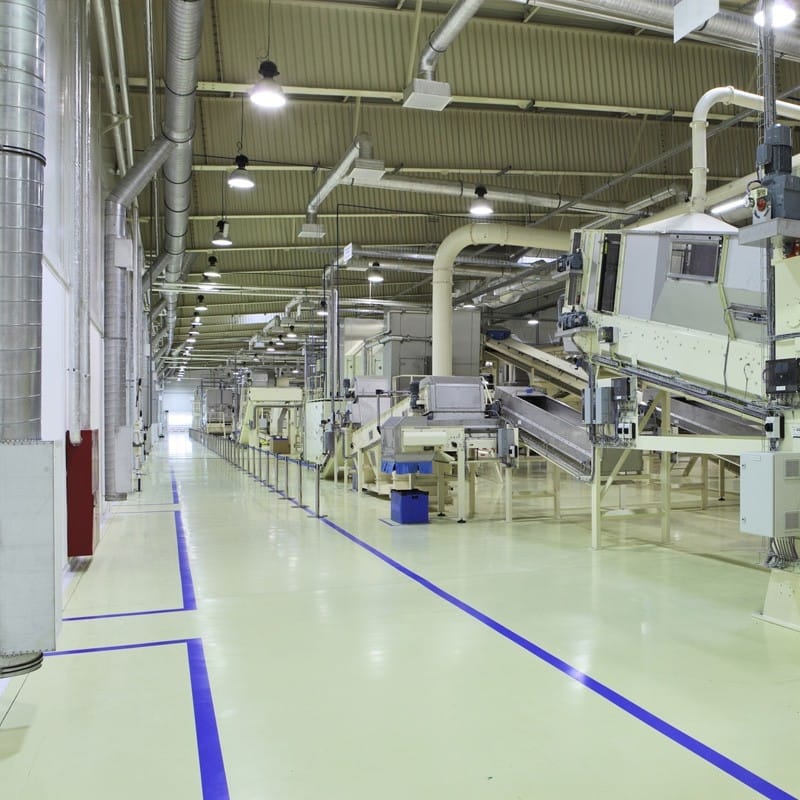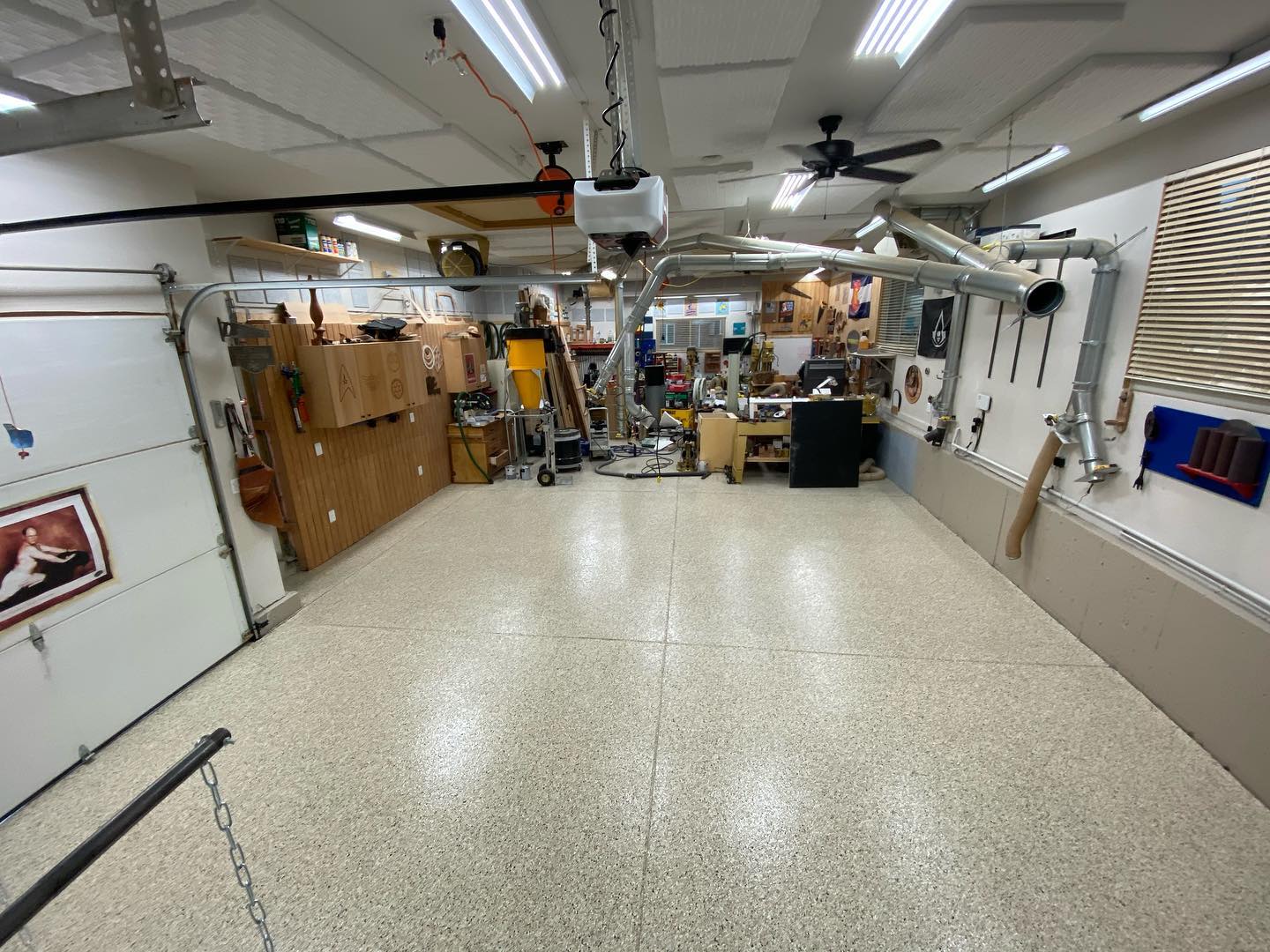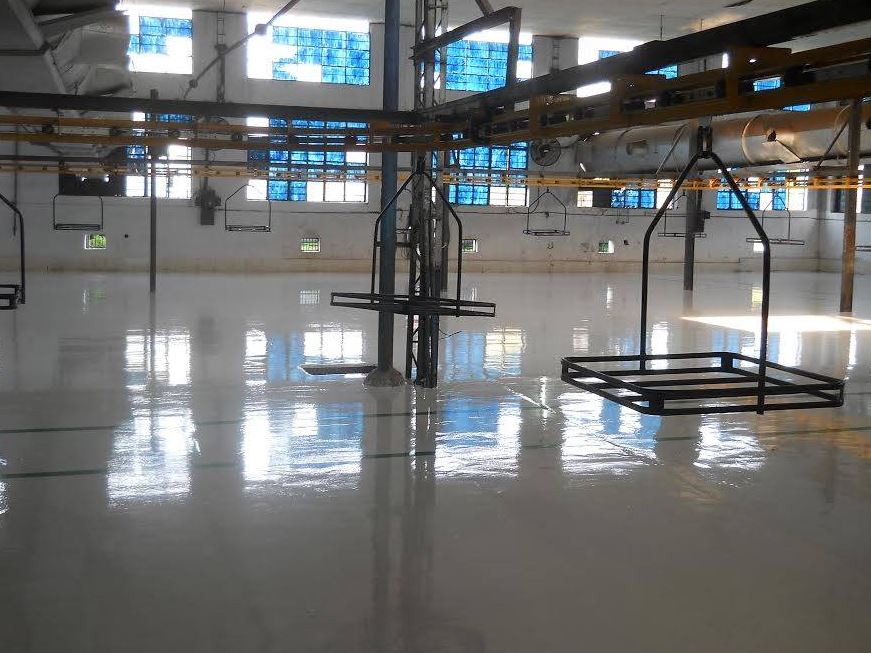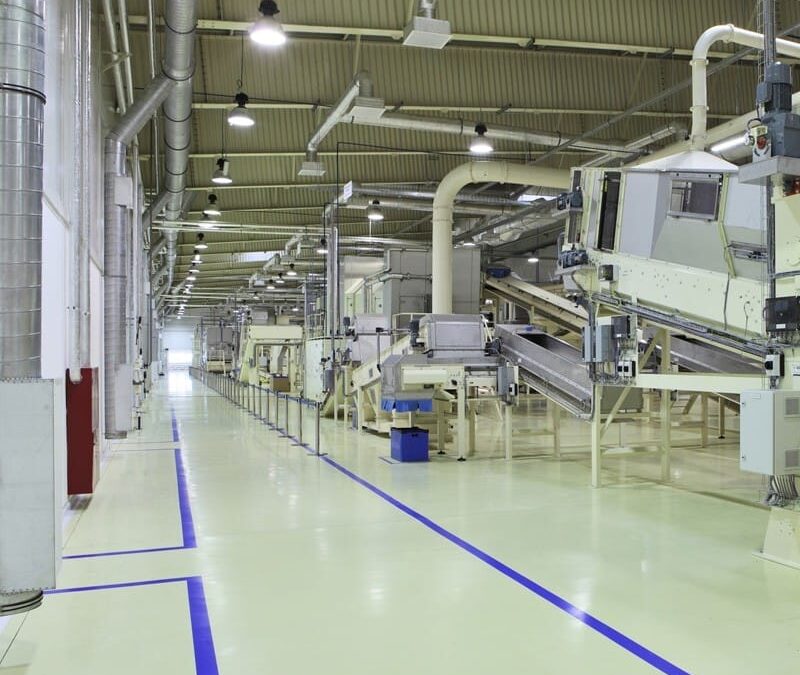Make Your Workspace Safer with Industrial Floor Coating
Are you looking for ways to make your workspace safer? If so, then investing in an industrial floor coating could be the perfect solution! Industrial floor coatings can help reduce slip-and-fall accidents, create a more durable work area that lasts through heavy traffic and use of heavy equipment. Not only will it increase safety levels but also add a touch of style to any space. They’re becoming increasingly popular with businesses in various industries, all across the world – so why not join them? Read on as we discuss some key benefits and features of this fantastic product.
Overview of Industrial Floor Coatings and Their Benefits
Commercial floor coatings are specialty paints or coatings applied to the floor of a facility to improve its aesthetic appeal, durability, and safety. They have become an invaluable asset in multiple industries like manufacturing, retail, pharmaceutical, and food processing to name a few.
- Durability and Resilience: Industrial floor coatings are designed to resist wear from heavy machinery and foot traffic, making them a long-lasting solution. They’re also resistant to chemicals, heat, and impacts, ensuring they can withstand the varying demands of different industrial settings.
- Enhanced Safety: With their anti-slip properties, these coatings significantly reduce the risk of accidents in the workplace. Some coatings are also resistant to fire or extreme heat, providing additional safety measures.
- Ease of Maintenance: These coatings create a seamless surface that’s easy to clean, reducing the time and effort required for regular maintenance.
- Aesthetics: Available in a wide array of colors and finishes, these coatings can be used to create visually pleasing and customized floor designs. This can help to improve the overall work environment and employee morale.
- Eco-friendly: Many modern industrial floor coatings are formulated to be environmentally friendly, reducing the impact on the environment while also meeting regulatory standards.
In conclusion, investing in industrial floor coatings is a strategic move that brings significant benefits in terms of safety, durability, aesthetics, and sustainability.

Industrial Epoxy Floor Coating
Reasons to Invest in Industrial Floor Coatings for Your Workspace
There are numerous compelling reasons to invest in industrial floor coatings for your workspace. Firstly, these coatings offer a cost-effective solution that can have a significant impact on your bottom line. By providing long-term durability and protection, the initial investment in the coating pays for itself over time. This results in reduced maintenance costs and eliminates the need for frequent repairs or replacements, saving you both time and money.
Secondly, the application of industrial floor coatings enhances the overall image of your workspace. A gleaming, well-maintained floor not only creates a positive impression on visitors and potential clients but also reflects the professionalism and attention to detail of your business. It conveys a sense of quality and reliability, which can greatly contribute to building a strong brand reputation.
Thirdly, these coatings have a direct impact on employee productivity. By creating a safer and cleaner environment, industrial floor coatings contribute to reducing accidents and minimizing downtime due to accidents or cleanup. With a well-coated floor, employees can move around safely and efficiently, focusing on their tasks without distractions or concerns about potential hazards. This can significantly improve overall productivity and efficiency in the workplace.
Lastly, investing in industrial floor coatings is a sustainable choice. Many coatings are formulated with low volatile organic compounds (VOCs), aligning with green building standards and promoting a healthier environment. By choosing environmentally-friendly coatings, you not only contribute to reducing your carbon footprint but also comply with regulations and demonstrate your commitment to sustainability.
The Different Types of Industrial Floor Coatings Available
There are several types of industrial floor coatings available in the market, each designed to meet specific needs and requirements.
- Epoxy Coatings: These are one of the most common types of industrial floor coatings. Known for their durability, strength, and high gloss finish, epoxy coatings are resistant to many types of damage, including wear, impacts, and chemical spills. They are ideal for spaces that experience heavy traffic or operate heavy machinery.
- Polyurethane Coatings: These coatings are renowned for their flexibility and high resistance to abrasion and impacts. Polyurethane coatings are often used in areas where there are temperature fluctuations as they can expand and contract without cracking.
- Acrylic Coatings: Acrylic coatings dry quickly and are UV resistant, making them an excellent choice for outdoor spaces. They’re also available in a variety of colors, allowing businesses to customize the appearance of their flooring.
- Polyaspartic Coatings: These are similar to polyurethane coatings, but they dry faster and can withstand higher temperatures. They are ideal in industries where quick installation and durability are key factors.
- Rubberized Coatings: These offer excellent slip-resistance and are ideal for areas where safety is a top priority. They can also withstand extreme temperatures and resist water, chemicals, and impacts.
Each of these coatings has its own unique set of benefits and is best suited to different types of environments. Therefore, when selecting an industrial floor coating, it’s important to consider your specific needs and requirements.

Commercial Epoxy Floor Service
Key Considerations When Choosing an Industrial Floor Coating
When choosing an industrial floor coating, there are several key considerations to bear in mind:
- Your Industry: Different industries have different flooring requirements. For instance, a food processing plant may need a floor that is easy to clean and resistant to bacterial growth, while a warehouse may need a floor that can withstand heavy machinery and foot traffic.
- The Condition of Your Current Floor: The current condition of your floor can affect the type of coating you choose. Floors with lots of cracks and damage might need a more robust solution than floors in good condition.
- Your Budget: Industrial floor coatings come in a range of prices, and it’s important to choose one that fits within your budget. However, remember that cheaper options may not provide as much durability or longevity, potentially costing more in the long run.
- Aesthetics: While functionality is key, the look of your floor can impact the overall aesthetic and atmosphere of your workspace. Many coatings come in a variety of colors and finishes, allowing you to customize the look to fit your brand.
- Environmental Impact: Consider the environmental impact of your chosen coating. Some options are more environmentally friendly than others, so if this is important to you, be sure to choose a coating that aligns with your company’s sustainability goals.
Important Steps to Follow During Installation Process
The installation process of industrial floor coatings is equally as important as the selection process. Following certain steps ensures the longevity and effectiveness of the coating:
- Floor Inspection: Before the epoxy installation, the floor should be thoroughly inspected for any signs of damage such as cracks, divots, or irregularities that could affect the application of the coating.
- Surface Preparation: The floor must be properly cleaned and prepped to ensure optimal adhrence of the coating. This could involve sweeping, scrubbing, or other techniques to remove dust, grease, or other contaminants. For some coatings, the floor might need to be ground or shot-blasted to create a suitable surface texture.
- Primer Application: A primer is typically applied to the floor to improve the bond between the coating and the concrete. This layer is allowed to dry completely before the actual coating is applied.
- Coating Application: The industrial floor coating is then applied as per the manufacturer’s instructions. The number of layers and drying time can vary based on the specific product and the desired thickness.
- Final Inspection: Once the coating is dried and cured, the floor should be inspected to ensure the coating has adhered properly and there are no defects.
- Maintenance Plan: After installation, a maintenance plan should be developed to keep the floor in optimal condition. This might include routine cleaning, inspections for damage, and eventual reapplication of the coating after a certain period.

Industrial Epoxy Flooring
Remember to always use protective clothing and equipment during the installation process, and ensure proper ventilation in the area to avoid health hazards. It is also best practice to work with experienced professionals to ensure the installation is done correctly.
Industrial floor coatings are an important investment for businesses that want to protect and maintain floors. With a variety of options available, it’s crucial to carefully consider the needs of your industry and workspace before making a decision. Additionally, following proper installation and maintenance procedures can ensure the longevity and effectiveness of your chosen coating. So, don’t overlook the importance of industrial floor coatings in creating a safe and durable workspace for your employees.

